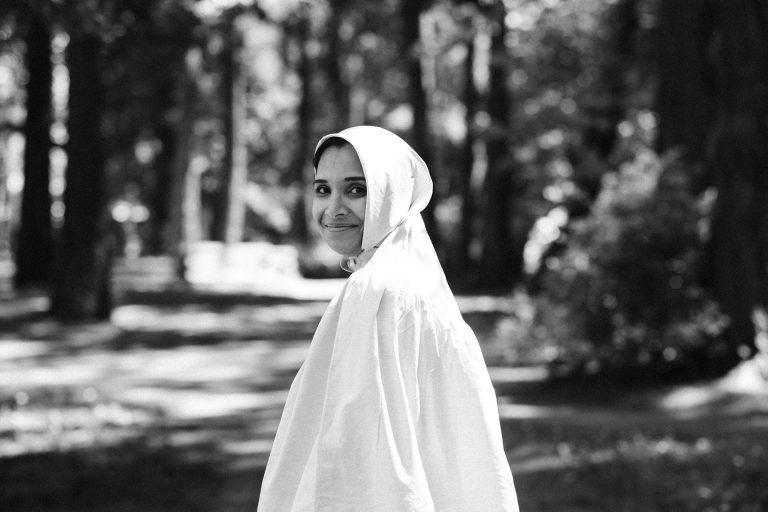Concordian recognized for her research on the online presence of Dawoodi Bohra women

"Religious women in general have always had a hard time finding safe public spaces to talk about issues that affect their lives,” says Arwa Hussain, a doctoral candidate in Concordia's Department of Religions and Cultures.
“It's more complicated for Muslim women because of general stereotyping, Islamophobia and the assumptions about them,” she adds.
Hussain's research explores how young women from the close-knit Dawoodi Bohra community interact on social media. The Dawoodi Bohras are an observant branch of Shia Islam spread throughout countries in the Middle East and East Africa, who number between two and five million people.
“I look at how social media and the internet provide opportunities for young religious Dawoodi Bohra women to express themselves more freely and articulate their identities,” she says.
Hussain has won the Fond de recherche du Québec's (FRQ) Relève étoile Paul-Gérin Lajoie Award for the month of July.
She was awarded the prize in the FRQ's Society and Culture category for her research paper "‘Covered, Not Bound’: Young Dawoodi Bohra Women's Self-Representation and Agency through the Online Website Mighzal," which was published last year in the Journal of Religion, Media and Digital Culture.
Three Relève étoile prizes of $1,500 are awarded every month in the categories of Society and Culture, Nature and Technology, and Health.
Freedom within the bounds of tradition
The Dawoodi Bohras have a small but growing presence in North America, including communities in Canada and the United States.
Hussain followed young women on the Mighzal website (an Arabic word meaning "spinning wheel"), combining digital ethnography and immersive cohabitation to learn more about how they interact and support each other online.
"We are a very diasporic community, and this was one of the first platforms where young Bohra women from all around the world were having all kinds of conversations that were affecting their lives," she says.
"There are different sections and profile pieces that inspire conversations. It was a way for women to see that there are others who share the same struggles."
Some of the issues that these young women talk about include gender relations, self-representation and fashion.
"Dawoodi Bohra women have a very unique kind of hijab called the rida, which is a two-piece garment that's very colourful and embellished," Hussain explains.
"It's a very identifiable form of dress, and Bohra women have a complicated relationship with it, because it comes with a religious association, but it can also be fashionable. Mighzal was one of the first websites in which Bohra women talked about the issues and the struggles they've faced related to religious dress."
Embracing technology positively
Hussain's paper and research, which she is expanding into a PhD, is an example of how technology and online spaces can positively impact traditional religious communities who have been isolated.
"One of the biggest things that I've seen in my research is this shift in how the rida is perceived, through this idea that it can be fashionable," she says. "The other thing that came out of Mighzal is just how this community has grown — it's now moved on to Instagram, mainly. But you can see this expansion in the number of young Bohra women having these discussions."
The community has enthusiastically embraced technology and the internet, across the board.
"There's always a bit of tension between new technology and tradition, but we see it as a tool, and it allows Dawoodi Bohra women to debate issues and have conversations that they otherwise wouldn't have. There's no censorship and it's been a natural progression toward connecting more easily."
Find out more about Concordia’s Department of Religions and Cultures and read the winning article by Arwa Hussain.


